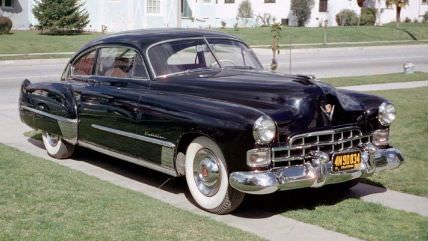Don't Get Rid of the Cadillac Tax!
In defense of an Obamacare tax.

There is precious little to like about either Obamacare or taxes, and you will rarely see praise in this space for either, let alone both at the same time. This is one such rare instance.
The tax in question is Obamacare's "Cadillac tax," which applies to very generous health-insurance policies provided by employers. It is scheduled to take effect in 2018. At present members of both parties are either railing against it or expressing deep skepticism, and a move is afoot to repeal it before it ever takes effect. This is a bad idea.
To understand why, you need to understand the original sin of the American health-care marketplace. It was committed back in World War 2, when inflation led workers to demand higher wages—which many employers could not afford to pay because of price controls. (Those had been imposed so the government could continue the war effort at lower cost.) The result was a federally imposed wage freeze.
With wages frozen, employers needed another way to compete for labor made scarce by the draft. So some began offering health coverage. The practice took root, spread, and outlasted the war. In 1949 the National Labor Relations Board ruled that health benefits counted as wages for the purpose of union negotiations. Five years later, the IRS ruled that health coverage was not taxable income. The result was a double incentive for employers to offer fatter health benefits in lieu of fatter paychecks.
Because someone else was giving them ever-more-generous health coverage, recipients had ever less reason to control costs or guard against waste. The result: a skyrocketing, ultimately unsustainable increase in national outlays for health care. (Other factors contributed to that increase as well, but perhaps none more than those explained above.)
In short, for decades the federal government has encouraged employers to provide gold-plated health-care plans. The Cadillac tax seeks to correct this, at least slightly, by taxing employer health benefits above a certain point: $10,200 for individuals and $27,500 for families starting in 2018. If, say, your employer provides your family with a health plan worth $29,500, then the amount above the cap ($2,000) would be taxed at 40 percent, meaning your employer would be on the hook for $800 in taxes.
Employers don't care for this, for obvious reasons. And those employers who offer flexible spending accounts and health savings accounts abhor it. That is because FSAs and HSAs allow employees to set aside funds (up to $2,550 at present) for medical care not covered by insurance. The employees get a tax break on their FSAs and HSAs. But the money set aside gets counted toward the Cadillac-tax insurance cap. This means a company could ratchet down its health-coverage plans to avoid the Cadillac tax, only to have to pay the tax anyway for each employee whose savings push the total benefit package back over the cap. Some health-care analysts expect the Cadillac tax will therefore kill off FSAs and HSAs entirely. (There are ways to avoid this dilemma, although none is terribly appealing.)
Is any of this ideal? Absolutely not. Nobody designing the American health care system from the ground up would organize it this way. The system is by now little more than a collection of kludges: clumsy, inefficient patches that make something more complicated in order to fix this or that aspect of it. The Cadillac tax amounts to yet another clumsy patch.
A scorched-earth reform of the health-care system would reach back several decades to correct its original sin. Eliminate the tax preference for employer-provided health care entirely and let people buy health insurance on their own, just as they buy most other kinds of insurance. To help the poor afford coverage, we could offer a refundable tax credit – i.e., one available even to those who pay no income taxes. This would produce a back-door version of universal coverage, with far less bureaucracy and government intrusion. It also would eliminate the current problem of providing vastly different incentives to health-insurance consumers depending on where they get their coverage.
That might be the best solution, but at present it's about as likely as Miley Cyrus becoming a nun. Politics is the art of the possible, and for now the Cadillac tax is not only possible, it's the law. It would be a grievous mistake indeed if Congress were to repeal one of the few parts of Obamacare that might actually work.
This article originally appeared at the Richmond Times-Dispatch.
